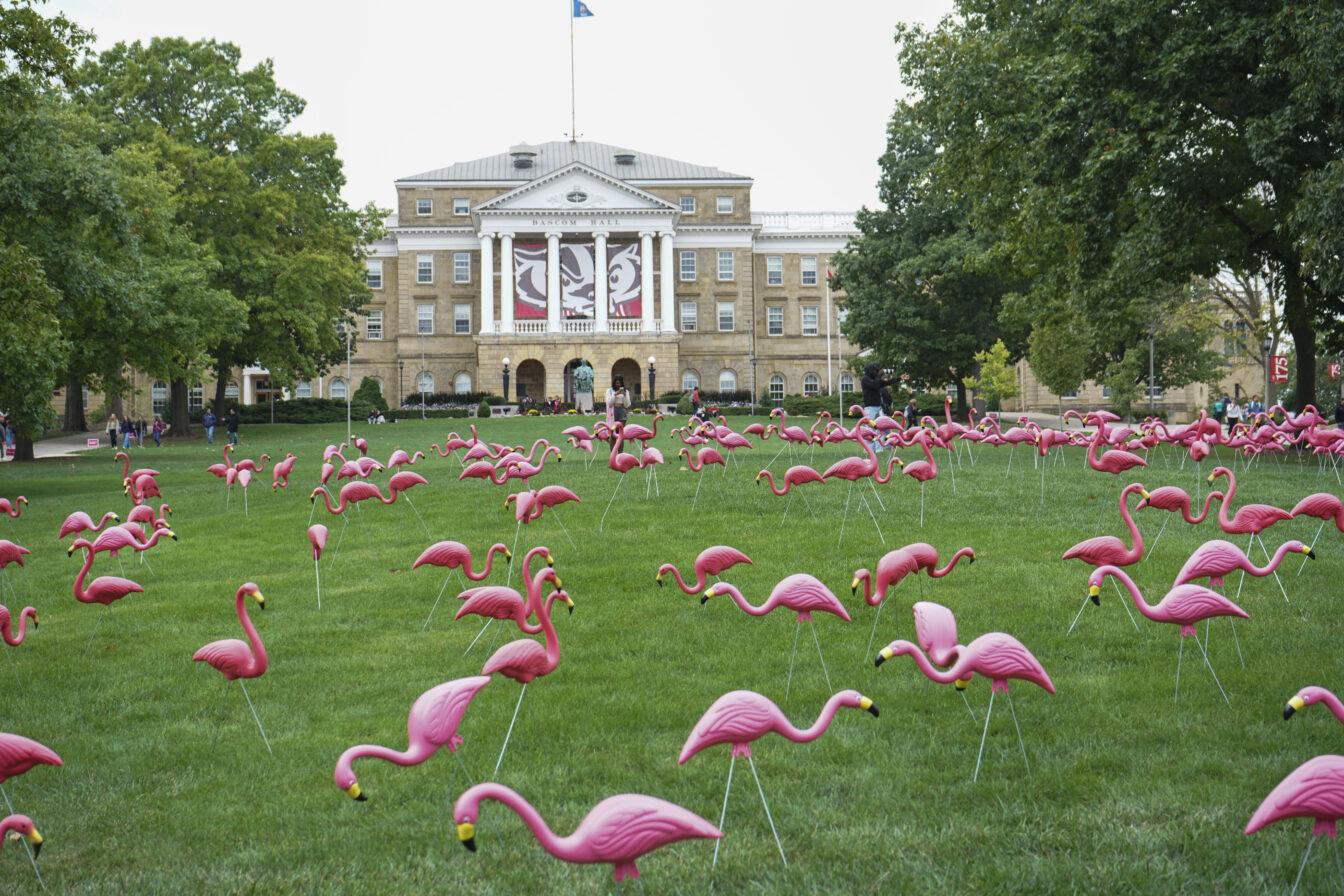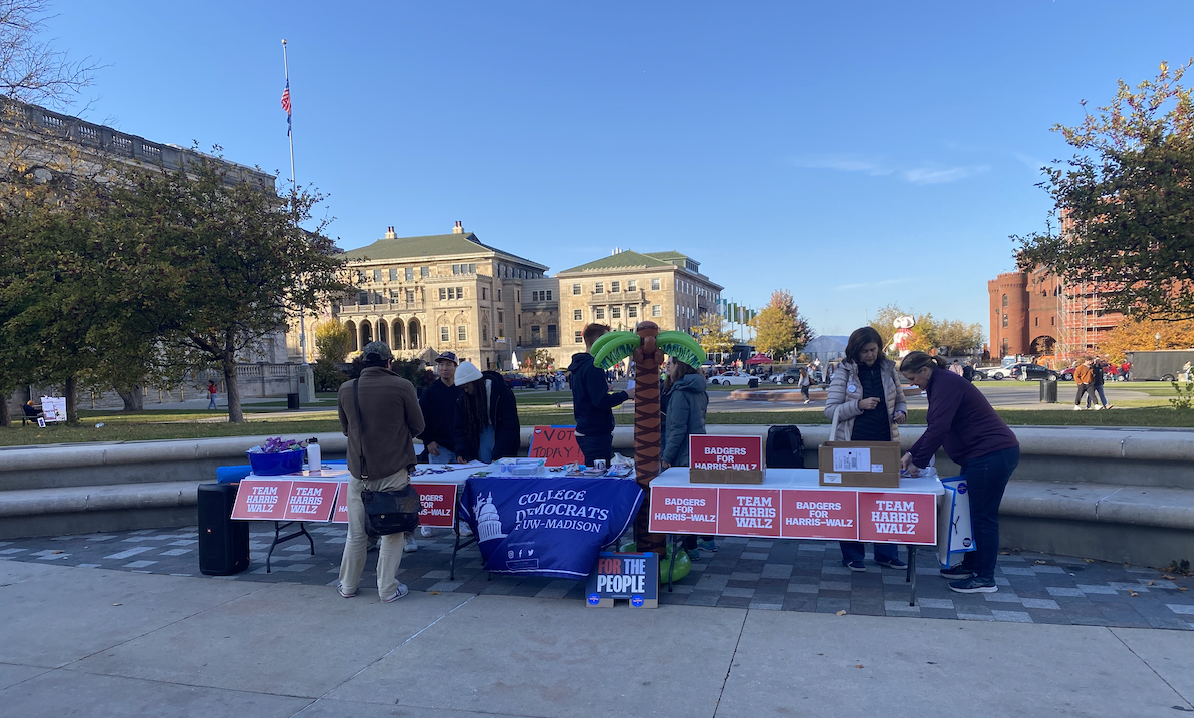Former Wisconsin governor and U.S. senator Gaylord Nelson spoke Wednesday at the Pyle Center regarding the sustainability of the environment.
In recognition of Nelson’s contributions, Gov. Scott McCallum signed Senate Bill 415, renaming UW-Madison’s Institute for Environmental Studies in honor of Nelson.
Best known for founding Earth Day, first celebrated in 1970, Nelson was deeply involved in the conservation movement for many years prior to that, championing numerous environmentally friendly bills during his three terms in the Senate.
“He certainly has been a tireless voice for the earth for more than half a century,” Yuill said. “This was well before [issues of land protection, wildlife habitat and environmental quality] became fashionable.”
Nelson focused on the necessity of finding sustainable alternatives to practices such as logging and the dangers of overpopulation.
“There are all kinds of challenges–water, soil, biodiversity, and you could go on and on,” Nelson said. “The challenge of every country is the challenge of sustainability. That means being sure the activity of the human species doesn’t exclude the land’s capacity.”
Nelson also stressed the idea of interconnectivity between natural resources and the economy.
“There is no nation in the world that is sustainable economically and environmentally,” Nelson said. “All countries in the world are consuming their capital and counting it as profit. What is capital [but] air, water, soil, forests, minerals, oceans, scenic beauty, biodiversity? Take that away and you have a wasteland.”
Other speakers with special knowledge of environmental issues also were present.
Curt Meine, member of the environmental group Waters of Wisconsin, said in times of national crisis, the environment is often thought of as unimportant and that this line of thought is dangerous.
“We all have dealt with this over the last six months,” Meine said. “The opportunity to articulate an alternative version of the global future was being lost. How can we get our voices through the fog of terrorism and international conflict? How will we allow events to unfold?”
Former Chief of the U.S. Forest Service Mike Dombeck encouraged the audience to “think about what land really is.”
“One thing I learned from forestry is that everybody loves trees. Some like them horizontal, and some like them vertical,” Dombeck said. “We in the U.S. are the benefactors of our 2.3 billion acres of land–46 million acres here in Wisconsin. And yet, do people really understand what land is? I include land as everything–the trees, the water, the air, the oxygen produced by the vegetation.”







